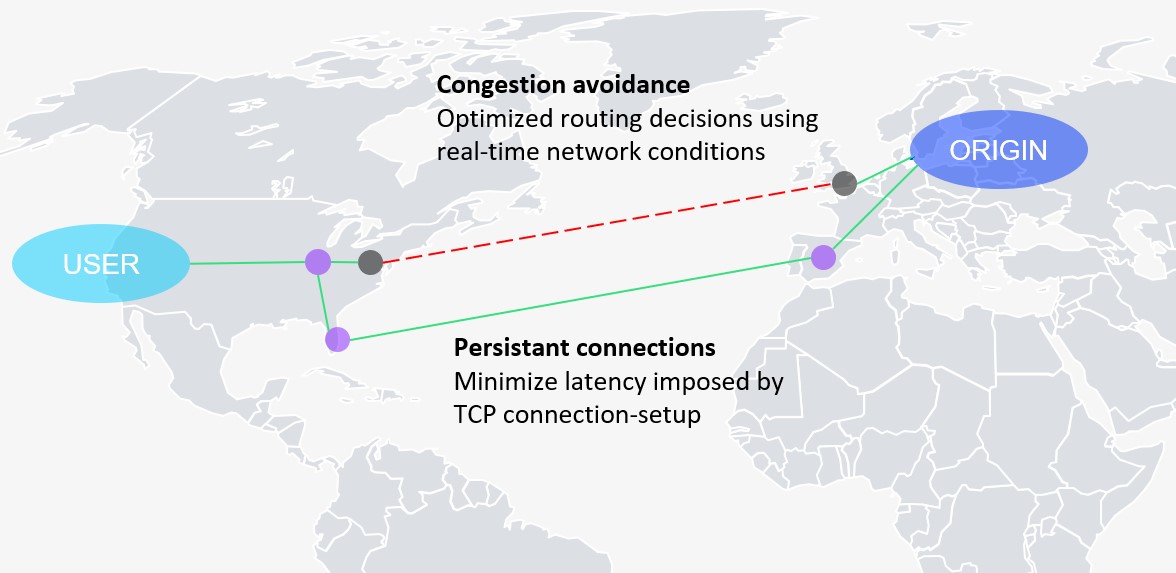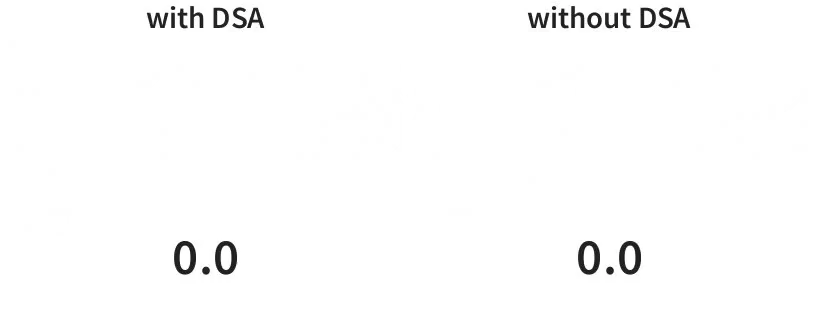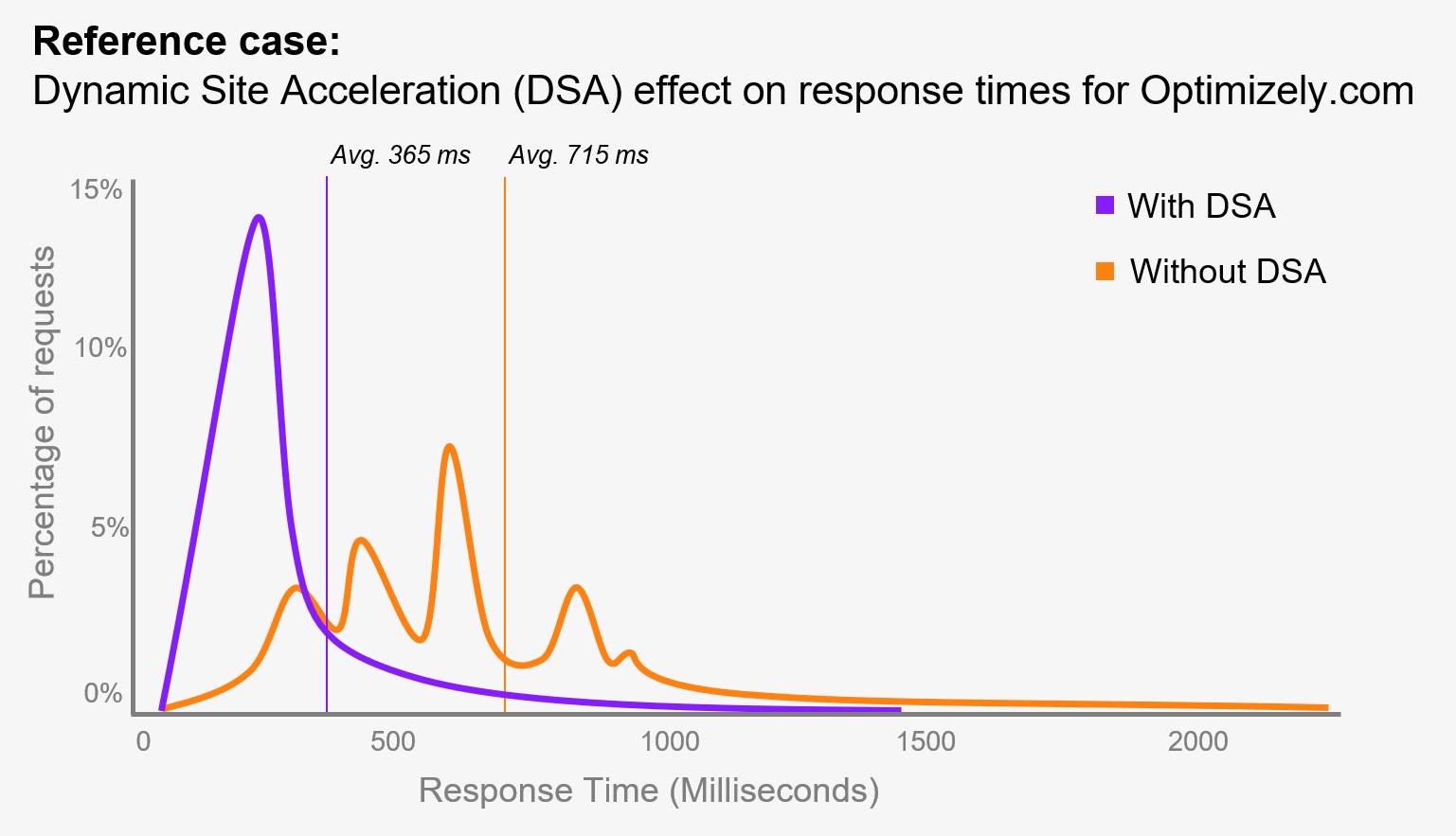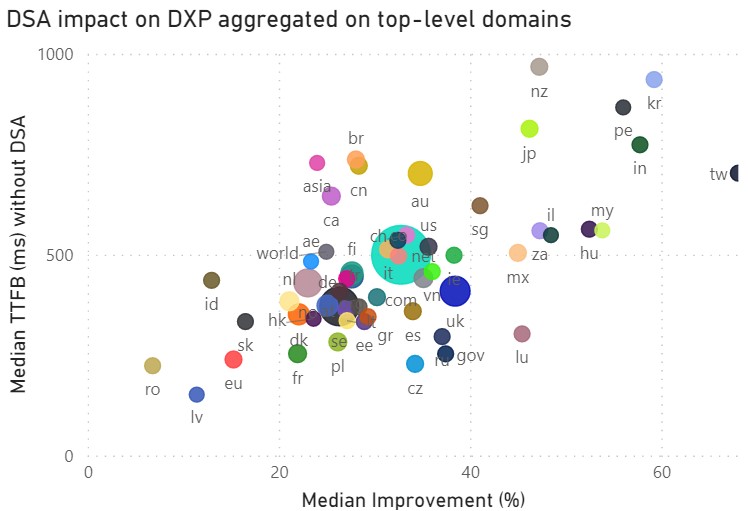Every DXP website just got faster
We’re happy to announce that we’ve just enabled another performance improvement to Optimizely DXP boosting the web performance of your websites and apps.
What’s new?
We have enabled Dynamic Site Acceleration (DSA) for every website on Optimizely DXP, which means we’re speeding up the dynamic (not cached) content between point A and B over Internet. Typically interactive and personalized websites spread over more than one region will benefit greatly from this, along with APIs. From early this week 90% of the dynamic content on DXP is loading on average 30% faster thanks to Dynamic Site Acceleration.

End-user experiences need to be immersive, interactive, and fast – regardless of the user's location, device, or current network conditions. With Dynamic Site Acceleration (DSA) Optimizely enables:
- Congestion Avoidance, with routing decisions informed by real-time network conditions
- Tiered Caching, with content served from adjacent data centers to reduce cache-miss rates, server load, and latency
- TCP Optimizations to further minimize latency for non-cacheable content
- Global coverage, with network routes across the entire world
How does this relate to the existing CDN caching in DXP?
Content Delivery Networks (CDNs) are great to speed up sites by caching files geographically close to the end-user, speeding up delivery of static files. However, in an era of an interactive and hyper-personalized web, a larger percent of content than ever is dynamic that is difficult or impossible to cache. At the same time, users expect a fast and reliable browsing experience.
By leveraging real-time network analytics of the internet and utilizing the CDNs backbone, we are able to also route requests smarter and avoid congestion beyond just caching content. This results in decreased load times, improved reliability, and because the points of presence in the CDNs backbone are mutually authenticated and provides end-to-end encryption, improved security that protects against interception, tampering and eavesdropping.
Can you prove the effect?
We can let the numbers speak for themselves (in case you already didn’t notice that this very website response time was improved by 44%).
Here are three examples:
1. Load times of a Reference website
This is an example using our Alloy reference site with a user in Singapore and origin servers in EU:

Both examples benefit from cached content, but the DSA-version on the left also have accelerated dynamic content making it load and render faster.
2. Response time improvement of an actual website
Here’s an actual reference case using our own website www.optimizely.com as an example, the average response time was cut in half. But maybe the most important effect is what you see in the visual below, the overall experience is improved for almost every user due to more consistent response times and hence a more consistent (and democratic) user experience.

3. Aggregated numbers showing improvement across entire DXP
Across all hostnames on DXP we can see a clear pattern between Time to First Byte (TTFB) and the improvements from DSA. Here’s an overview where we aggregated hostnames by top-level domains.

Examples from the graph on median improvements.
- India (.in) improved 58%
- Australia (.au) improved 35%
- .com improved 32%
- Sweden (.se) improved 25%
What do you need to do to leverage DSA?
Absolutely nothing – from today, this is part of our standard deployment in the DXP Cloud Service. Every new website on DXP will get it automatically, and every existing website have it from November 8-9th 2021. We did the job for you, it’s on!
What does it cost?
It’s included in Optimizely DXP, so all new and existing customers have it today without any additional costs.
Please comment and share your experiences and feedback below. Maybe you’ve some examples on e.g. SpeedIndex improvements you want to share. Enjoy!
John & Elias
Product Managers of the DXP Cloud Platform at Optimizely

Comments